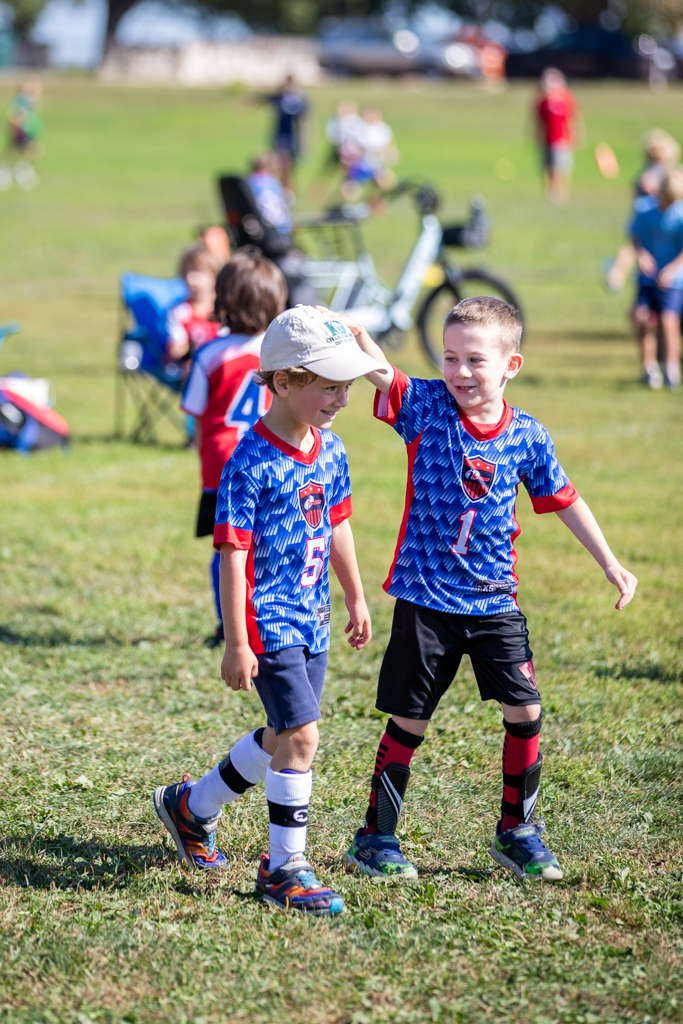Building Meaningful Relationships in Youth Sports
A growing body of research shows that meaningful relationships are about more than what we get; they’re about what we give. Psychologist and best-selling author, Adam Grant, noted in his recent article that “mattering” isn’t just about being valued, but about knowing we add value to others.
This is especially true for kids in today’s world. Recent surveys reveal that 72% of teens have used AI companions, and nearly a third find them as satisfying, or more satisfying, than human interactions. But, why do kids find bots more satisfying than human interaction? Chatbots are good at offering empathy and validation.
But there’s a catch: those interactions are one-sided. Kids can receive attention, but they don’t get the deeper experience of giving support.
What the Research Says About How Kids Build Strong Relationships
- Contribution Drives Well-Being
Studies show that people live longer when they have responsibilities that allow them to give back, even something as simple as taking care of a plant. As humans, we want to contribute and feel like we are making a difference in the world around us. Sports provide an opportunity for kids to have those invaluable experiences. - Support Creates Growth
Children build confidence and resilience when they understand that their actions have a positive impact on others. Youth sports provide a stage for kids to learn and develop these skills. Whether it’s passing the ball to a teammate or setting a screen, kids learn teamwork and the importance of working together towards a common goal and positive outcome. - One-Sided Relationships Fall Short
Whether it’s with technology or in life, interactions that only involve receiving can reinforce unhealthy behaviors and limit growth. While AI is intuitive, we are just scratching the surface of what impact it will and can have on human development. One thing we do know is that we need to be a part of a team or group, and we need community to feel fulfilled. Youth sports provide a space for kids to practice their social skills and connect with others.
What This Means for How Youth Sports Help Kids Build Strong Relationships
Youth sports offer something unique that no chatbot, app, or screen can replicate— a space for kids to both give and obtain support. On the field, kids not only receive positive support from coaches and parents but they learn how to encourage a teammate, share responsibility, compromise, and celebrate collective success.
For parents, this is a reminder that success in youth sports is not only about winning. The deeper value is in how children learn to matter, not just to themselves, but to those around them.
How Parents and Coaches Can Help Kids Develop Strong Relationships through Sports:
- Encourage your child to take on small team responsibilities.
- Praise not only effort and achievement, but also acts of kindness and support.
- Remind them that being a great teammate means giving back as much as it does standing out.
Big Picture: How Youth Sports Help Kids Develop
As technology becomes more integrated into kids’ lives, it’s tempting to see validation as the ultimate measure of well-being. But what kids truly need is the sense that they make a difference. Youth sports provide one of the best environments to help children grow into not only better athletes, but better friends, leaders, and ultimately human beings.
About the Author

Tyler Munoz
Manager Of Sport, i9 Sports®
Tyler is responsible for creating and implementing national training programs for coaches and over 240 franchisees to achieve the company’s mission to help kids succeed in life through sports.
Tyler grew up in Modesto, California, playing baseball, basketball and football from the age of 5. Sports have always been at the center of his life and have been something that he has dedicated his life to making a positive impact in.
He discovered his passion - supporting coaches to ensure they can provide a quality sport experience to the athletes that they coach during his education at California State University, Fresno. He earned his Master of Arts in Kinesiology – Sport Psychology and his Bachelor of Arts in Political Science with a Minor in Sport Coaching from California State University, Fresno.
After graduating, Tyler spent a year in New Zealand and Australia, where he studied and participated in the two countries’ sport environments, athlete development systems, and coaching models.
After his travels, he joined the United States Olympic and Paralympic Committee’s (USOPC) Coaching Education Department as the American Development Model and Youth Development fellow. Tyler was able to collaborate and coordinate sport development projects with several National Governing Bodies and assist the Coaching Education team with creating and updating resources related to coach training and the American Development Model.
Tyler continued to consult with the USOPC on initiatives related to the American Development Model the Quality Coaching Framework and ultimately, developed an online course, Foundations of the American Development Model. In 2020, he accepted a position with USA Football as the Senior Manager of Coach Education.
During his three years there, he was able to redesign the organization’s coach education certification, which led to USA Football achieving its’ one millionth coach certification in 2022. Tyler has coached football, baseball, and basketball at all levels of sport (recreational, scholastic, national, and international) throughout his life and is passionate about giving back to the communities in which he has lived.
Presentations and Awards:
College of Health and Human Services- Outstanding Project Award
Presented graduate project at the 39th Annual Central California Research Symposium
Olympic & Paralympic Coach Magazine Spring 2020- ADM & Me: Insights in Learning from my USOPC Fellowship
Presented at the USA Football National Conference 2020
Presented at the National Post Olympic and Paralympic Conference of Sport & Science at the Wingate Institute in Israel
What Does Fun Look Like? - Interview with Athlete Era
